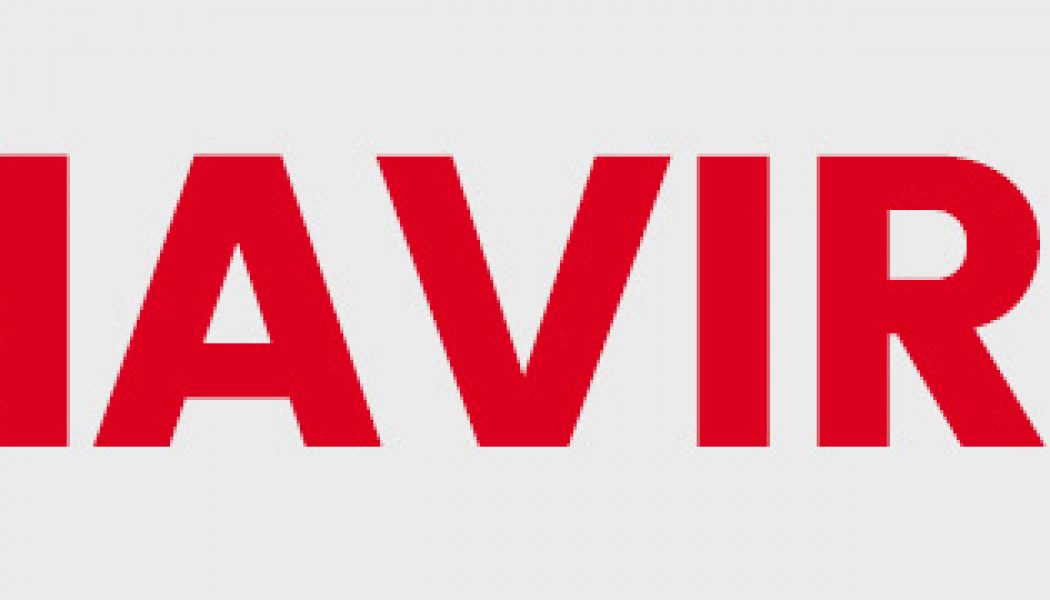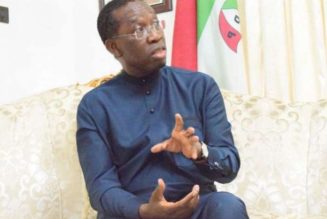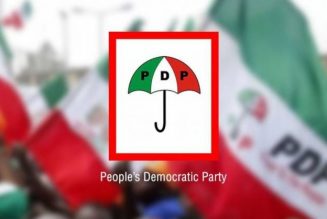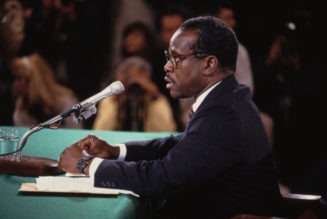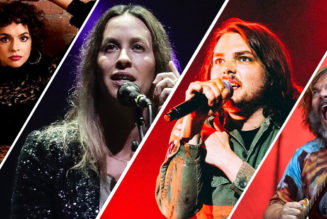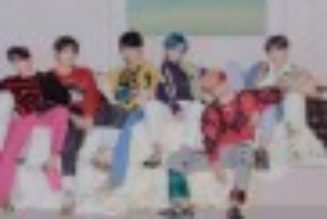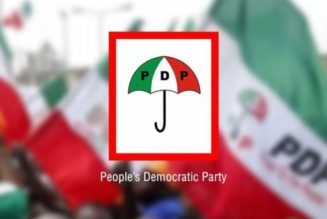“It strengthens the argument that we really need to support our local venues, and for us to represent their needs at the table,” says Anne del Castillo.
This week, New York City enters phase three of reopening amid the coronavirus pandemic, meaning the return of hair and nail salons, basketball courts and more spaces in addition to outdoor dining. But for local music venues from (Le) Poisson Rouge to Brooklyn’s Elsewhere — many of which faced rising rents, gentrification and other challenges even before the pandemic began — the road to reopening remains ongoing and uncertain.
Anne del Castillo knows this struggle well. The New York City native took over as commissioner of Mayor Bill de Blasio‘s Office of Media and Entertainment (MOME) in April 2019, with a focus on strengthening the local film, TV, theater, music, advertising, publishing and digital content industries while also overseeing the Office of Nightlife. But with live entertainment on pause, she has instead spent much of the past four months listening to the needs of local music venue owners, connecting them with government resources and fielding ideas for safe reopening, from drive-in concerts to sidewalk shows.
She doesn’t take the responsibility lightly: “I came back to New York after 9/11, because I had that same feeling,” del Castillo says of her urge to help the local community in a crisis. “When everyone was running away, I came back. This is how people support each other.”
Below, del Castillo discusses where things stand for local venues, the obstacles that remain and why the pandemic could offer an opportunity to correct some of the long-standing problems venue owners and performers face.
How has your role shifted since the pandemic began?I did not envision my role to be crisis manager. When you and I last spoke, there was all of this exciting stuff we were planning and the creative economy was really strong. It has been a significant pivot. In the first week, we were able to pull together surveys and town halls, to get a sense of where everyone was, and then bring [business owners] together and tell them what resources were available. They may have never realized that there’s an Office of Media and Entertainment here, or that there’s a Department of Small Business Services that can help connect them to grants, information about legislation or webinars when they’re learning how to apply for federal support.
I’m trying to be careful now about distinguishing between artists, freelancers and workers — they’re all workers. I’m trying to reframe the dialogue for how we talk about arts and culture generally. One opportunity is to let the industry know that we’re here to help through some of this stuff; and then alternatively, really helping government and civic leaders understand that workers are workers, whether they’re creating art or serving dinner or building sets. The creative industries are significant — that’s what’s going to drive the recovery of New York City. That part has been invigorating and inspiring, even over some of the darkest times of the last four months.
Of course, in the midst of all of this, we’ve had a real reckoning with Black Lives Matter and the protests. This is stuff that we’ve been talking about at the agency for quite a while now — the need to create pathways for all New Yorkers to access opportunities. I realize that might seem a little bit attenuated and superficial, but it’s not. We know that the strength of our city is its diversity, and for an entertainment and arts center, we need to embrace that in every aspect of the work that we do. We have things that we’ve been doing at the agency to advance that conversation for many years, starting with the “Made in NY” Production Assistant Training Program, up through the women’s fund grant. So that has been another positive — to get everybody, finally, on the same page that we’ve been touting for a while.
What exactly is the MOME’s responsibility in the city’s reopening process?
To be clear, the health guidelines are the health guidelines. We’re not helping to create those guidelines, but [we do help create] things like operational guidelines, or even physical distancing guidelines for certain businesses. [The campaign] “Take Out…Don’t Hang Out” was our office. We came up with that because we saw that people were confused about what was supposed to happen when they went to their local bar or restaurant to get food. We just launched “It’s Up To You New York,” helping people understand that it really is up to every single New Yorker to make sure that we have a strong recovery. So [we’re] providing guidance — in some cases for operation, in some cases for behavioral guidance — and then the other part of our role is to hear the concerns of the industry, and make sure they’re represented at the table of policy-making and guidance development.
There has been so much uncertainty around this pandemic: How long it will last, the potential effects, what health guidelines are actually working, et cetera. How are you working through that uncertainty?
One of the things inherent in working in the creative industry is the need to be fluid and flexible. We were set to go, for example, with indoor dining on Monday [July 6], and then we saw the reports last weekend of all of the upticks throughout the nation, and decided that’s not the right move. While we know that it’s the right thing to do, it’s a very hard thing to do, because we’re telling businesses, “You are still going to stay closed for an indefinite period of time.”
I’ve tried to turn that energy into planning. What we can control is how we think about what opening would look like if we could, and engage in those conversations. How would you ensure the safety of your workers; of your patrons? What do you think it should look like if you want to start production again; if you want to open up your venue at partial capacity? It helps us develop recommendations for our colleagues in government about what the needs may be in terms of informational support, if not financial support, because I think we all know that that’s a problem in the current climate. What are some pieces of guidance, information or resources that we could facilitate to make it easier for these industries to reopen when they’re ready? That’s some of the work we’ve been doing. It’s also something we’ve been looking at in the Taskforce on Racial Inclusion and Equity. We want to build a more equitable recovery.
Before the pandemic, New York’s music venues were already struggling with rising rents and other challenges. How do those pre-existing challenges factor into what you’re doing now?
Part of what we were trying to do in the music space was figure out what was getting in the way of success for venues. We were just starting to have that conversation, and now, they’re really hurting. So on the one hand, it’s really terrible, and we know that there are very specific needs that venues have, like rent relief. We need more loan programs; we need more federal support; state support. The money is definitely an issue. But what [the pandemic] has also done is really brought those issues to the fore. The community has been saying this for a long time, but now that we’re having to reevaluate every single thing that drives our economy, it has a bigger voice.
It’s awful that it takes a crisis, but in some ways, there is an opportunity for us to rethink how to make entertainment a priority in the recovery, because we know that it’s so important for New York’s identity. It just strengthens the argument that we really need to support our local venues, and for us to represent their needs at the table. I think the support structures that we’ve put into place are flawed, and this is an opportunity to think about, “How are they flawed and how do we fix it?”
Music venues aren’t explicitly listed in the current phase guidelines. Are venues technically considered phase 4?
This is where we get a bit fluid. I think it’s going to depend on the venue. It’s tricky, because if you’re a bar that serves food and you have performance, then you’re open now. If only we could all be Austin and have Stubb’s. So there is some crossover, and it gets a little bit confusing for venues to understand what’s permissible and what’s not. Those are the kinds of conversations we’re having right now.
What have those conversations been like? What are some of the most promising ideas for safely reopening music venues?
You probably have seen that the VMAs are supposed to be coming in August. We’re talking to them about doing it without an audience, and just having the performances there, so that it’s an iconic New York location with perhaps satellite events throughout the city. The summer does provide opportunities for certain venues to do something outdoors. Are there ways we can do programming around open streets? I think we’re going to start to see some collaborations among venues and nontraditional venues, just to keep the spirit of the gathering that would normally take place in those venues alive. When you have to social distance, how do you keep that essence and that thing that makes that place special? We have dedicated staff for each type of entity, and the live music venue crosses three areas of our portfolio — nightlife, music and theater — so those program directors are working together to understand the needs and see if there are cross-collaborations they can develop.
What do you think about drive-in concerts?
There’s been some discussion around that. Tribeca Drive-In just announced their drive-in series, and we’re working with them. But the spaces that are available to do that kind of thing are a bit limited, so we want to make sure there’s an equitable process.
Enforcement seems to be an issue across all the national reopenings. Can you speak to how New York City is making sure business owners and patrons comply with guidelines?
The challenge of the Nightlife Office is that they’re there to promote safe socializing and safe engagement with outdoor dining, but they have no enforcement authority. And that’s by design; we have other agencies to do that. Our job is really to remind people of their human obligation to socialize responsibly.
But I think we’ve done a pretty damn good job in New York City with the reopening. We’ve been really cautious. I have to tell you, industries are like, “When are you going to open up filming? All of these other jurisdictions opened up.” I’m like, “Yes, and now they’re closing.” This is why we’re being really judicious and deliberate in how we’re rolling things out. There’s always areas for improvement, but by-and-large, I think New Yorkers have done a really solid job of stepping up and being safe and responsible to each other. We were the epicenter, and yet our recovery so far has been pretty good.
What do you expect for the next couple of weeks and months?
We’re focusing on working with the industry to [make sure they] understand the guidelines for safe reopening and have access to all of the city supports. Continuing to make sure that New Yorkers are participating in things in our portfolio — like the creative and dining areas — and that they understand they have a role in that. And then really looking at long-term recovery for our industries. We have an opportunity to rebuild and restructure certain things. What can we do to make it better, moving forward, for everyone?
Is there anything else businesses can be doing right now?
The one thing I’ve been telling our constituents is that, in addition to learning about the government, they really need to engage with their local electives and fill out the census! It’s really important. Those are two really important things they can do right now to help with the recovery.
